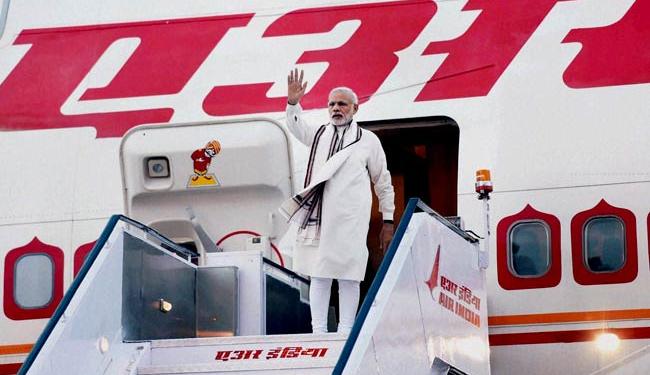The year 2018 was a glorious one for India when it came to foreign policy. India achieved a number of milestones in this year under the leadership of Prime Minister Narendra Modi. Whether it is diplomacy, defense, soft power or economy; India has raised the bar which is tough for any developing nation to match up to. Here are the five foreign policies victories of India in the year 2018.
Currency swap agreements with UAE and Japan
The first one in the long list of achievement of India’s foreign policy this year is the signing of the currency swap agreement worth 3,500 crores (500 million dollars) with UAE and a 75 billion dollar swap agreement with Japan. India’s currency swap agreement worth will address the rise in Current Account Deficit (CAD) and strengthen the value of Indian rupee. Trade in local currency is beneficial on many fronts. A country can save its foreign exchange if it trades in local currency. The repeated Balance of Payments crisis faced by developing economies could also be solved through local currency trading. The currency swap also boosts the value of the respective currency against the dollar. In the last few years, India has emphasized on trading in local currency and signed currency swap agreements with many friendly countries. The trade in local currency will also help in improving the stature of the Indian Rupee in the global currency market.
Ensuring exemptions from US sanctions
The second one and arguably the most important one in the list is strategic approach of India on the diplomatic relation with other nations; which played a big role in ensuring India’s exemption from US sanctions. India faced the threat of sanctions from the United States under the CAATSA (Countering American Adversaries Through Sanctions Act) law of the US on the import of crude oil from Iran, which India refused to recognize. India has recently signed an MOU with Iran to pay in rupees for crude oil imports. According to MOU, Indian refiners will transfer payments in rupees to Indian government owned United Commercial Bank (UCO) account of the National Iranian Oil Co (NIOC) while half of these funds will be set aside for settling payments for exports of Indian goods to Iran. India shall be exporting food grains including wheat and soyabean, medicine and medical equipments to Iran. Mike Pompeo, Secretary of State, USA, announced on November 5 that the Trump administration would be exempting India among other nations as it showed considerable reduction in imports from Iran. Under the said 180-day exemption from US sanctions, India has restricted oil imports from Iran to 300,000 bpd or 15 Million tonnes in a year, from 452,000 bpd or 22.6 million tonnes bought in FY 2017-18. Many foreign experts and economists termed this move of Indian government as a master stroke of foreign policy.
Improved relations with the Maldives
When it comes to the friendliness of India towards its neighbors, this year adds a distinguished chapter in the Indian foreign policy. India and Maldives enjoy a healthy relationship as neighbors historically. But, the last government under President Abdullah Yameen, made a dent to it as he was more leaning towards China. After general elections in Maldives this year, the newly elected president Ibrahim Mohamed Solih invited PM Modi in oath taking ceremony and is considered close to India. India has played a very important role in the development of Maldives since its independence. It provided economic aid and participated in bilateral programs for the development of infrastructure, health, civil aviation, telecommunications and labor resources. Strengthening of bond between India and Maldives will give India an upper hand there and that’s why Chinese media talking about cooperating with India.
Isolating Pakistan in the International Forums
Though, India has managed to strengthen bonds with most of the nations of the world but Pakistan always stands out as an exception. It is not that the Modi government hadn’t tried but Pakistan’s nature is known to the whole world. Pakistan has been humiliated again and again by India on world forums. Be it the Surgical strike 2.0, blacklisting of Pakistan for the violation of religious freedom or the addition of Pakistan in the grey list of The Financial Action Task Force (FATF), this year turned out to be disastrous for our “beloved” neighbors. Pakistan’s economy is going down with a fast pace because of the terror activities and terror funding. Since the BJP government under PM Modi has come to power, Pakistan has been isolated internationally and diplomatically with projects like Kishanganga Hydroelectric Plant and showing their true face at international forums like United Nations, G7 and SAARC summits.
Recognition of India, and PM Modi, as a world leader: Sign of India’s growing soft-power
PM Modi has done a lot of good work in the field of enhancing peace and promoting sustainable development. PM Modi’s accolades from the international community have kept coming at a steady pace. The latest addition to the long list of awards for PM Modi and his policies came from the prestigious Seoul Peace Prize Committee. The committee decided to award PM Modi with the 2018 Seoul Peace Prize; the award is recognition of PM Modi’s tireless efforts at improving international cooperation, raising the global economic growth and for accelerating the Human Development of the Indian citizens. Lately, PM Modi has also been felicitated with the ‘Champion of the Earth’ award in 2018 for his continuous effort in the field of sustainable development.
It is evident from the fact that the year 2018 has been a stellar and acclaimed one for our nation in terms of foreign policy achievements.























